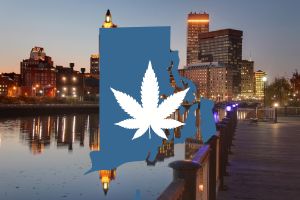Is Hemp Legal in Rhode Island?
Posted by Tweedle Farms on Jun 12th 2021

Understanding Hemp Legality in Rhode Island: A Guide for Stakeholders and Consumers
Rhode Island's approach to the burgeoning hemp industry is in line with the landmark 2018 Farm Bill, which federally recognized hemp as an agricultural commodity distinct from marijuana, primarily due to its low THC content of 0.3% or less on a dry weight basis. This distinction has paved the way for a thriving market of hemp-derived products, including CBD flower, CBG flower, pre rolls, and more, within the Ocean State. Here, we delve into the legal intricacies surrounding hemp for both industry stakeholders and consumers.
Legal Framework for Hemp in Rhode Island
Rhode Island's Industrial Hemp Program, regulated by the Department of Business Regulation, is the cornerstone of the state's legal structure governing hemp. This program licenses growers of hemp flower, handlers, and dual-grower/handlers, ensuring that all operations related to hemp cultivation and product manufacturing adhere to state-specific regulations. The process for obtaining these licenses is streamlined through the state's Cannabis Licensing Portal, emphasizing the importance of compliance with regulatory standards.
Industry Compliance
For those taking part in the hemp industry, including cultivators, processors, and retailers, Rhode Island mandates strict adherence to operational guidelines. These include seed-to-sale traceability, ensuring that hemp from one lot is not mixed with another, and specific limitations on sales and transfers. Hemp and its derivatives can only be transferred between licensed entities, underscoring the state's commitment to a regulated and safe hemp market.
Consumer Access and Restrictions
In Rhode Island, consumers can legally purchase and use hemp-derived CBD products that meet the federal THC threshold. The market offers a variety of products, from tinctures and topicals to hemp flowers, provided they contain less than 0.3% THC. The state imposes an age restriction on hemp CBD product sales, limiting transactions to individuals 21 and older and requiring retailers to obtain separate licenses for each selling location. This regulatory framework ensures that consumers have access to safe and legal hemp-derived products, while also safeguarding against the sale of non-compliant items.
Transportation and Usage of Hemp Products
The United States Postal Service (USPS) has clarified that hemp flower, adhering to the 0.3% THC legal limit, can be shipped across all 50 states. This federal acknowledgment facilitates the online purchasing and delivery of hemp products in Rhode Island, enhancing consumer access to fresh and legal hemp flowers. While hemp and its derivatives are legal for use, consumers should remain mindful of state regulations, particularly regarding public consumption and the operation of vehicles.
Conclusion
Rhode Island's legal landscape for hemp cultivation, processing, and consumption provides a structured framework for industry stakeholders and consumers alike. Adherence to state regulations, proper licensing, and compliance with THC content limits are pivotal for navigating the hemp industry within the state's legal confines. As the industry evolves, staying informed about legislative updates and regulatory guidelines will be crucial for all parties involved in Rhode Island's hemp market.



